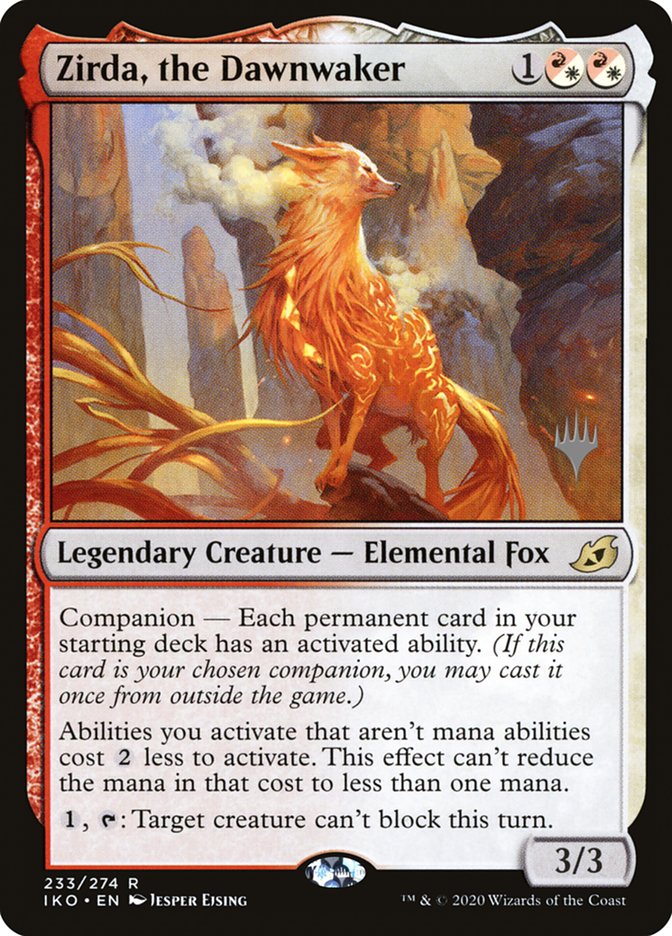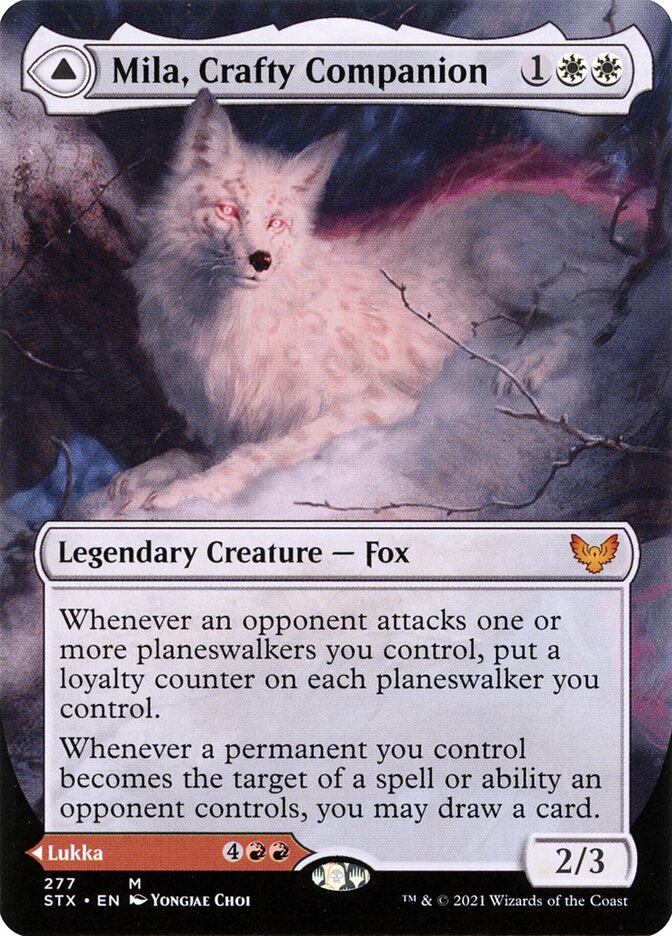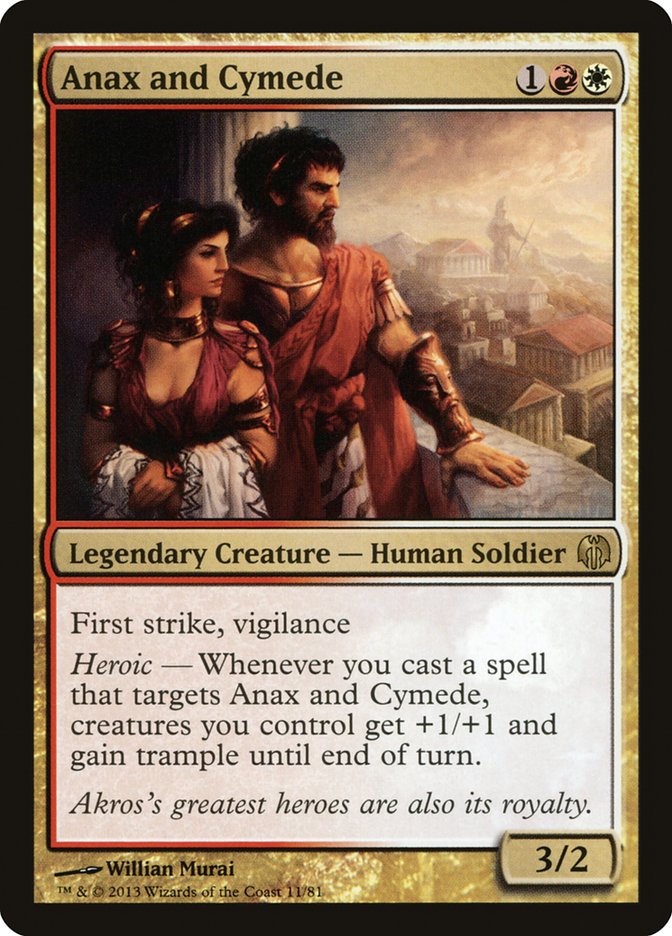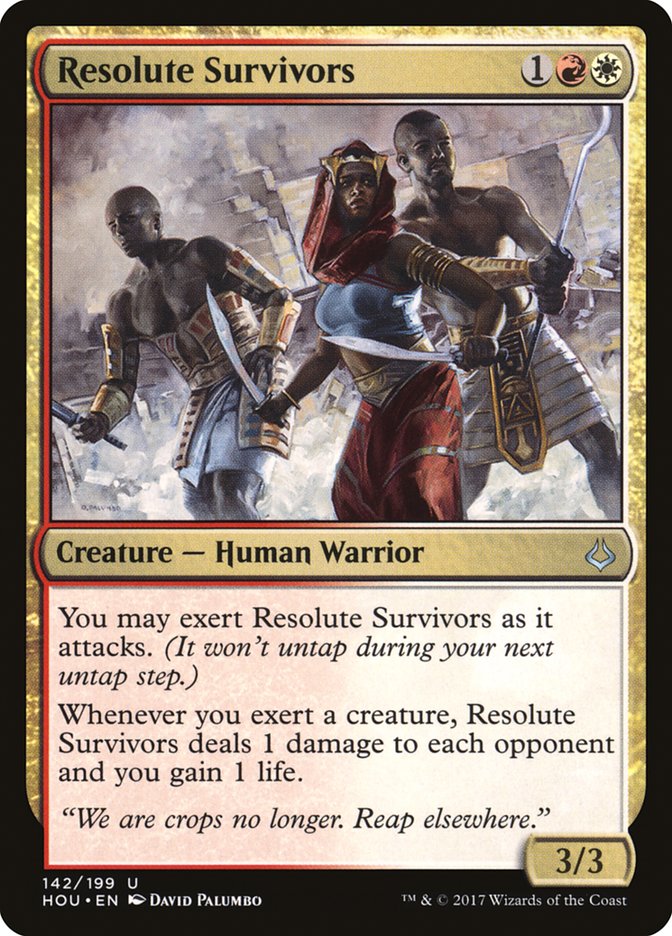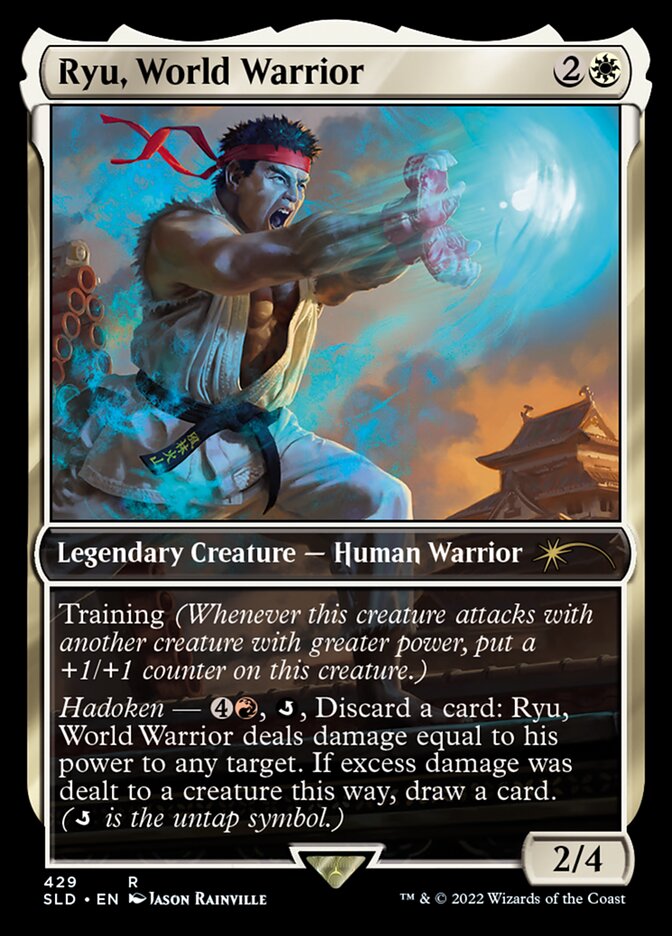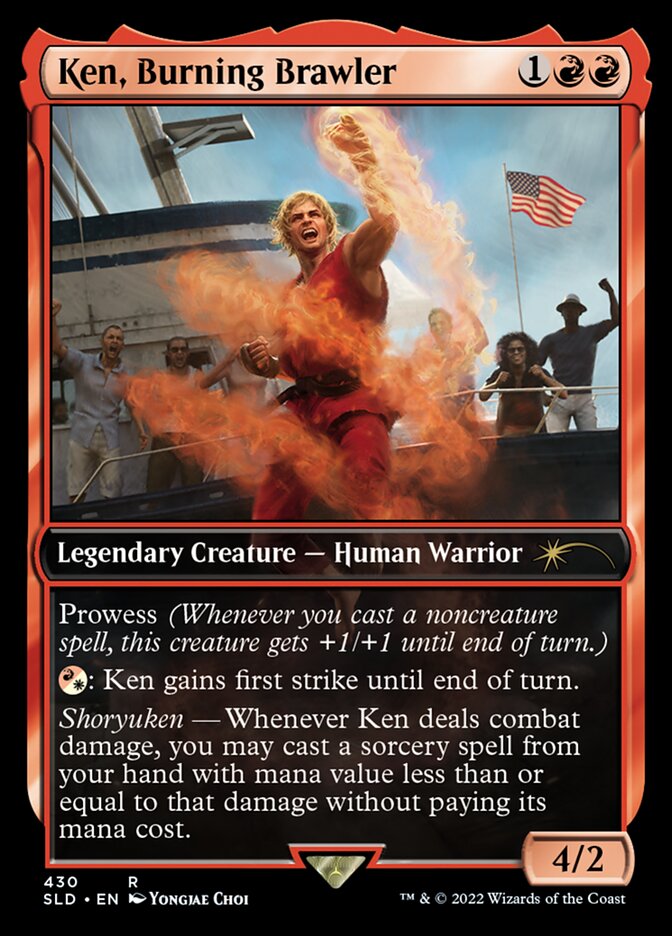Zirda, the Dawnwaker MTG Card
| Card sets | Released in 9 setsSee all |
| Mana cost | |
| Converted mana cost | 3 |
| Rarity | Rare |
| Type | Legendary Creature — Elemental Fox |
| Abilities | Companion |
| Power | 3 |
| Toughness | 3 |
Text of card
Companion — Each permanent card in your starting deck has an activated ability. (If this card is your chosen companion, you may put it into your hand from outside the game for as a sorcery.) Abilities you activate that aren't mana abilities cost less to activate. This effect can't reduce the mana in that cost to less than one mana. , : Target creature can't block this turn.
Cards like Zirda, the Dawnwaker
Zirda, the Dawnwaker brings a unique twist to the field of creature cards in Magic: The Gathering. This intriguing creature shares some traits with other cards that also focus on reducing activation costs, such as Biomancer’s Familiar. However, Zirda is distinct in its requirement that each permanent you control has an activated ability with a tap in its cost to benefit from its cost-reduction ability. Biomancer’s Familiar doesn’t impose such a restriction, making it more flexible in a wider variety of decks.
Another comparable card is Heartstone, which cuts activation costs for creatures across the board without any specific limitation. While Heartstone benefits all creatures and not just ones with tap abilities, it affects all players equally, unlike Zirda which is solely advantageous to its controller. Training Grounds is also part of this conversation, offering a significant cost reduction for creature abilities. Yet again, Zirda stands out by affecting not only creatures but any permanents with tap abilities, potentially enhancing an even broader spectrum of your strategy.
In summation, while several cards have similar cost-reduction abilities, Zirda, the Dawnwaker’s specialization in permanents with tapping abilities positions it uniquely in the strategy space of Magic: The Gathering. Its particular requirement for activation stands as both a strategic challenge and an opportunity for deck builders.
Cards similar to Zirda, the Dawnwaker by color, type and mana cost
Decks using this card
MTG decks using Zirda, the Dawnwaker. Dig deeper into the strategy of decks, sideboard cards, list ideas and export to play in ARENA or MOL.
| # | Name | Format | Archetype | Event |
|---|---|---|---|---|
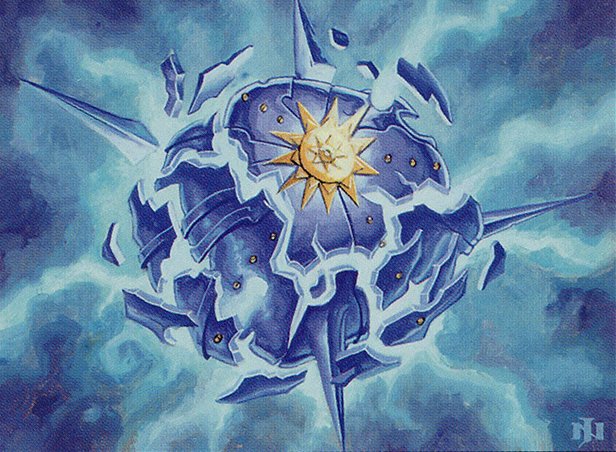 | Thopter Combo | Modern | Thopter Combo | Modern Preliminary 2024-04-12 (1) |
Card Pros
Card Advantage: With Zirda, the Dawnwaker’s ability to reduce activation costs, players can deploy abilities far more often than usual. This can lead to an increased card advantage by enabling repeated use of card-draw abilities for less mana, inching you ahead of the competition over time.
Resource Acceleration: Zirda the Dawnwaker offers a unique form of resource acceleration. It shines by making activated abilities of other permanents you control cost less, effectively multiplying your mana’s utility. When every mana saved adds up, Zirda acts as a key piece in executing your strategy faster and more efficiently.
Instant Speed: While Zirda itself doesn’t operate at instant speed, its persistent reduction in ability costs empowers a player to more effectively use instant speed abilities. This sets up opportunities for impactful plays during an opponent’s turn without the standard mana restrictions, keeping your options wide open as the board evolves.
Card Cons
Discard Requirement: Pairing Zirda the Dawnwaker with a deck requires dedicating a slot to it as your companion by conforming to the specific deck-building condition it dictates. Failing to meet the requirement or choosing not to can deprive you of its potential benefits.
Specific Mana Cost: Zirda boasts a mana cost that includes specific colors, necessitating both white and red mana. This requirement can restrict its integration, making it less versatile for decks that do not operate within the Boros color combination.
Comparatively High Mana Cost: Although Zirda offers a valuable ability to reduce the activation cost of other permanents, its initial casting cost of three mana, which includes a hybrid mana, may compete with other significant three-drop cards within the same colors, potentially delaying your game plan.
Reasons to Include in Your Collection
Versatility: Zirda, the Dawnwaker not only serves as an effective companion for decks with an activated abilities theme but also as a standalone inclusion that can lower costs and enhance performance across a variety of deck strategies.
Combo Potential: With its ability to reduce the activation cost of other permanent’s abilities, Zirda unlocks high-impact synergy with numerous cards, enabling devastating combo outcomes that can turn the tide of the game in your favor.
Meta-Relevance: In a meta where optimizing resource efficiency is key, Zirda gains importance. It acts as a force multiplier for decks that can leverage the reduced cost of abilities, making it a contender in the ever-evolving competitive landscape.
How to beat
Zirda, the Dawnwaker represents a unique challenge on the battlefield, standing out among the legendary creatures of Magic: The Gathering with its ability to reduce activated abilities’ costs. This partner creature can quickly turn the tide by enabling an overwhelming advantage, especially when synergizing with artifacts and creatures with tap abilities.
To disarm this potent fox’s advantage, focusing on removal spells that can target permanents regardless of their types is key. Direct removal like Path to Exile or Assassin’s Trophy provides an immediate solution. Also, consider countering Zirda’s activated abilities with cards like Tale’s End or Stifle. Moreover, instant-speed interaction ensures that Zirda can be stopped before its ability can be utilized, keeping the gameplay more manageable for you. Remember, prevention is the way to go as disabling your opponent’s strategy can often pave your path to victory.
Bearing in mind Zirda’s companion restriction, decks built around it may have lesser versatility, allowing you to potentially anticipate and prepare for their more predictable plays. By understanding Zirda’s strengths, and more importantly, planning for its arrival, you can maintain control over the game and emerge victorious.
BurnMana Recommendations
Zirda, the Dawnwaker’s exceptional abilities in resource acceleration and combo potential can make it a valuable asset in your MTG arsenal. As you dive deeper into optimizing your deck’s capabilities, consider the strategic advantage that Zirda could bring to your game. Resourcefulness and smart deck building ensure your success across the tables. We encourage you to not only study Zirda’s distinctive edge over similar cards but also understand its weaknesses to devise prolific strategies. Ready to harness the power of Zirda, the Dawnwaker? Join us to explore in-depth insights and tactical wisdom to refine your gameplay and enrich your collection.
Where to buy
If you're looking to purchase Zirda, the Dawnwaker MTG card by a specific set like Magic Online Promos and Ikoria: Lair of Behemoths Promos, there are several reliable options to consider. One of the primary sources is your local game store, where you can often find booster packs, individual cards, and preconstructed decks from current and some past sets. They often offer the added benefit of a community where you can trade with other players.
For a broader inventory, particularly of older sets, online marketplaces like TCGPlayer, Card Kingdom and Card Market offer extensive selections and allow you to search for cards from specific sets. Larger e-commerce platforms like eBay and Amazon also have listings from various sellers, which can be a good place to look for sealed product and rare finds.
Additionally, Magic’s official site often has a store locator and retailer lists for finding Wizards of the Coast licensed products. Remember to check for authenticity and the condition of the cards when purchasing, especially from individual sellers on larger marketplaces.
Below is a list of some store websites where you can buy the Zirda, the Dawnwaker and other MTG cards:
 BUY NOW
BUY NOW BurnMana is an official partner of TCGPlayer
- eBay
- Card Kingdom
- Card Market
- Star City Games
- CoolStuffInc
- MTG Mint Card
- Hareruya
- Troll and Toad
- ABU Games
- Card Hoarder Magic Online
- MTGO Traders Magic Online
See MTG Products
Printings
The Zirda, the Dawnwaker Magic the Gathering card was released in 4 different sets between 2020-04-24 and 2023-04-21. Illustrated by 2 different artists.
| # | Released | Name | Code | Symbol | Number | Frame | Layout | Border | Artist |
|---|---|---|---|---|---|---|---|---|---|
| 1 | Magic Online Promos | PRM | 80867 | 2015 | Normal | Black | Jesper Ejsing | ||
| 2 | 2020-04-24 | Ikoria: Lair of Behemoths Promos | PIKO | 233p | 2015 | Normal | Black | Jesper Ejsing | |
| 3 | 2020-04-24 | Ikoria: Lair of Behemoths | IKO | 360 | 2015 | Normal | Black | Jesper Ejsing | |
| 4 | 2020-04-24 | Ikoria: Lair of Behemoths Promos | PIKO | 233s | 2015 | Normal | Black | Jesper Ejsing | |
| 5 | 2020-04-24 | Ikoria: Lair of Behemoths | IKO | 233 | 2015 | Normal | Black | Jesper Ejsing | |
| 6 | 2023-04-21 | Multiverse Legends | MUL | 65 | 2015 | Normal | Borderless | Justine Mara Andersen | |
| 7 | 2023-04-21 | Multiverse Legends | MUL | 195z | 2015 | Normal | Borderless | Justine Mara Andersen | |
| 8 | 2023-04-21 | Multiverse Legends | MUL | 195 | 2015 | Normal | Borderless | Justine Mara Andersen | |
| 9 | 2023-04-21 | Multiverse Legends | MUL | 130 | 2015 | Normal | Black | Jesper Ejsing |
Legalities
Magic the Gathering formats where Zirda, the Dawnwaker has restrictions
| Format | Legality |
|---|---|
| Historicbrawl | Legal |
| Historic | Legal |
| Legacy | Banned |
| Oathbreaker | Legal |
| Gladiator | Legal |
| Pioneer | Legal |
| Commander | Legal |
| Modern | Legal |
| Vintage | Legal |
| Duel | Legal |
| Explorer | Legal |
| Penny | Legal |
| Timeless | Legal |
Rules and information
The reference guide for Magic: The Gathering Zirda, the Dawnwaker card rulings provides official rulings, any errata issued, as well as a record of all the functional modifications that have occurred.
| Date | Text |
|---|---|
| 2020-04-17 | Activated abilities contain a colon. They're generally written “ -ost: -ffect].” Some keyword abilities are activated abilities (such as cycling) and will have colons in their reminder text. |
| 2020-04-17 | Activating Zirda's last ability after a creature has blocked won't remove the blocking creature from combat or cause the creature it blocked to become unblocked. |
| 2020-04-17 | An activated mana ability is one that produces mana as it resolves, not one that costs mana to activate. |
| 2020-04-17 | Before shuffling your deck to become your library, you may reveal one card from outside the game to be your companion if your starting deck meets the requirements of the companion ability. You can't reveal more than one. It remains revealed outside the game as the game begins. |
| 2020-04-17 | Effects that reduce the generic mana cost of an activation cost can't reduce that cost's colored mana requirements. The activation cost is reduced by only if doing so reduces that cost to one mana. For example, a cycling cost of would become , and one of would become . The activation cost is unaffected if it already costs one or zero mana (such as the activation cost of Zirda's last ability). |
| 2020-04-17 | If more than one player wishes to reveal a companion, the starting player does so first, and players proceed in turn order. Once a player has chosen not to reveal a companion, that player can't change their mind. |
| 2020-04-17 | If you reveal a companion outside the game, for as long as it remains there, you may pay any time you could cast a sorcery (that is, you have priority during your main phase and the stack is empty). Once you do, you put it into your hand and behaves like any other card you've brought into the game. For example, if it's discard, countered, or destroyed, it's put into your graveyard, remaining in the game. This is a change from previous rules. |
| 2020-04-17 | Permanent cards are artifact, creature, enchantment, land, and planeswalker cards. Land cards with basic land types have intrinsic activated mana abilities associated with those types. |
| 2020-04-17 | The companion ability has no effect if the card is in your starting deck and creates no restriction on putting a card with a companion ability into your starting deck. For example, Zirda may be in your starting deck even if your other permanent cards don't all have activated abilities. |
| 2020-04-17 | The companion's other abilities apply only if the creature is on the battlefield. They have no effect while the companion is outside the game. |
| 2020-04-17 | The requirements of the companion ability apply only to your starting deck. They do not apply to your sideboard. |
| 2020-04-17 | You may have one companion in the Commander variant. Your deck, including your commander, must meet its companion requirement. Your companion is not one of your one hundred cards. |
| 2020-04-17 | Your companion begins the game outside the game. In tournament play, this means your sideboard. In casual play, it's simply a card you own that's not in your starting deck. |
| 2020-06-01 | If you reveal a companion outside the game, for as long as it remains there, you may pay any time you could cast a sorcery (that is, you have priority during your main phase and the stack is empty). Once you do, you put it into your hand and behaves like any other card you've brought into the game. For example, if it's discarded, countered, or destroyed, it's put into your graveyard, remaining in the game. This is a change from previous rules. |
| 2020-06-01 | Paying to put your companion into your hand is a special action. It doesn't use the stack and players can't respond to it. Once you take this action, you may cast that card if it's legal to do so before any other player can take actions. |
| 2020-06-01 | Wizards of the Coast has issued functional errata for the Companion mechanic. Instead of casting companions from outside the game: Once per game, any time you could cast a sorcery (during your main phase when the stack is empty), you can pay to put your companion from your sideboard into your hand. This is a special action, not an activated ability. It happens immediately and can’t be responded to. It can’t be countered or stopped by cards like Phyrexian Revoker. For more information please see https://magic.wizards.com/en/articles/archive/news/june-1-2020-banned-and-restricted-announcement |
